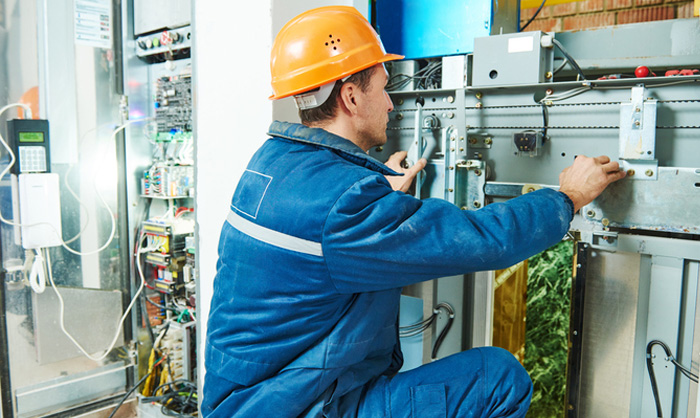Cars need inspections. Building additions need inspections. And so too do elevators. Here at Mowrey, we do all we have to do to meet and exceed the standards that have been put in place to ensure industry benchmarks are achieved. When your elevator has been inspected, and has passed, you will be able to display that document in your elevator for all to see.

If your elevator fails inspection, you will have to make the necessary upgrades and repairs to ensure it passes. Federal agencies such as OSHA oversee inspection standards, and those standards state that all elevators must be inspected at particular intervals, usually every year or sometimes twice a year. In some cases, additional inspections may be called for on a monthly basis.
Achieving Compliance with Standards
With multiple standards in place that each building and associated elevators must comply with, it’s important to adhere to all of them. These can include fire safety codes that apply to all elevators in the country, as well as state-wide codes that are unique to the state you’re located in.
Stringent safety requirements must be met by owners or managers of commercial buildings, office buildings, government agencies, hospitals, and university universities, to name a few. If you fail, you can no longer operate those elevators.
Checklist
Elevator inspectors have safety checklists that they work off of when visiting the site for an inspection. Focus areas include:
- Pipes, wiring, ducts
- Ventilation systems
- Car platform guard
- Hoistway enclosures
- Stop switches
- Car top clearance
- Emergency exits
- Traveling cables/junction boxes
- Door locking devices
- Bottom clearance
- Low oil protection
- Terminal stopping devices
On top of the inspection itself, you may be subjected to follow-up audits if your inspector encountered a problem. Speaking of the inspector, all inspectors must be certified elevator inspectors. These checks can’t be done by someone on your staff. The third-party inspector is impartial and their main job is to:
- Ensure passenger safety (students, patients, tenants, general public, employees, clients).
- Offer non-biased inspections.
- Minimize liability risks.
- Meet all requirements as spelled out by insurance companies.
- Comply with federal, local and state jurisdictions.
Do your research before hiring a reputable third-party inspector. In addition to the actual inspection, this person will also handle processing and filing fees for you. Their signature will appear on the inspection result document posted inside the elevator. That document will also show an expiration date.
Passing an Inspection
Certain safety requirements must be complied with for an elevator to pass inspection. Those include:
- Landing openings have to have operable gates and doors while the cab is positioned on other floors.
- Operable emergency buttons.
- Operable lights and buttons.
- Posted max load limits.
- Clear access to machine space.
Contact Mowrey Elevator
If you would like to ask a question about elevator inspections for your building or you need parts for compliance, call us today.
